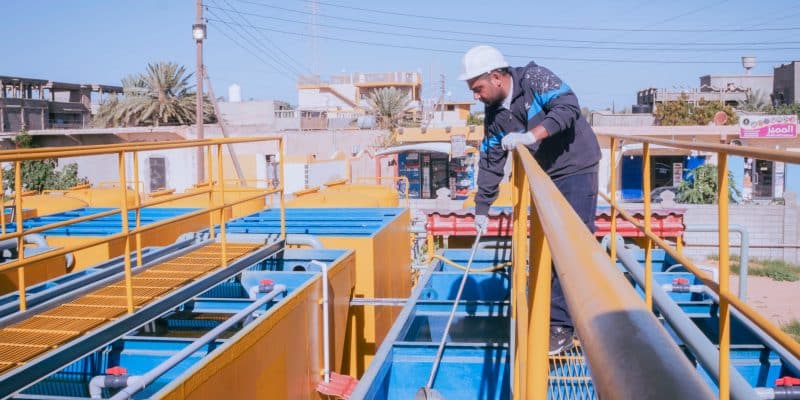At least four compact wastewater treatment units were inaugurated on Wednesday 24 May 2023 in the Tripoli district. The new facilities are expected to improve liquid sanitation in the commune of Garabulli.
The level of wastewater pollution is expected to decrease in the municipality of Garabulli in Libya. This is now possible thanks to new sanitation facilities inaugurated on Wednesday 24 May 2023 by the Libyan Minister of Local Government, Bader Al-Deen Al-Tomi. This was in the presence of representatives of the European Union (EU) and the United Nations Development Programme (UNDP). These are four compact units with a total capacity of 2,000 m3 per day, supplied by the Indian company Ewalt Technologies. According to UNDP, the new facilities should benefit 67,000 people, including 5,880 migrants.
The commissioning of these wastewater treatment units “is a continuation of the Ministry of Local Government’s approach to supporting and transferring skills to municipalities, as well as the direct international support provided through a partnership with the EU and UNDP to achieve this goal. These two organisations have also contributed to the objective of improving basic services. This transfer of skills contributes to local stability and sustainable development,” said Minister Bader Al-Deen Al-Tomi at the inauguration ceremony of new wastewater treatment plants in Garabulli.
Reducing pollution
The establishment of these new infrastructures aims to reduce the level of pollution by wastewater in this municipality of the Tripoli district. These effluents contaminate the water table and the soil. The new stations are being installed as part of the “Baladiyati” programme, which means “My Municipality” in English. This is an EU initiative funded through the EU’s Emergency Trust Fund for Africa (EUFT), which directly supports the “most vulnerable” municipalities in Libya.
Read also- LIBYA: a wastewater treatment plant to reduce pollution near Tajoura NHC
The aim is to improve people’s access to basic services such as health, education, water, hygiene and sanitation (WASH). Regarding the Wash sector, Mostafa Omar, the United Nations Children’s Fund (UNICEF) spokesperson for Libya, estimated in July 2019 that nearly 4 million of Libya’s 7 million people would not have access to safe drinking water in the event of the rupture of the large artificial river that provides 95% of the water consumed in this North African country. Such a scenario would lead to the spread of water-borne diseases such as cholera, hepatitis A and diarrhoea.
For the record, the artificial river is the result of a pharaonic project initiated by former Libyan President Muammar Gaddafi. The project, which has now been halted, was considered the most important water supply project in the world. The aim of the Libyan authorities was to exploit the Sahara aquifer. This aquifer is made up of four large basins of fresh water trapped under the Sahara desert for 38,000, 14,000 and 7,000 years, and discovered during an oil exploration in 1953. Muammar Gaddafi began exploiting this immense freshwater reserve, estimated at more than 30,000 km3 , in the 1970s, with work carried out in several phases. The water pipes installed under his regime have been vandalised, in a context of political instability. This situation has led to fears of water shortages in this country with an arid desert climate.
Jean Marie Takouleu







